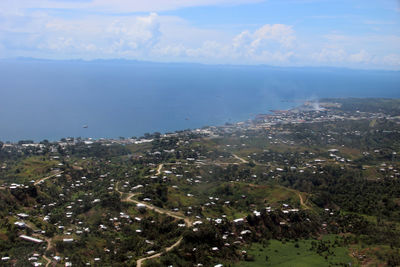Gynopedia needs your support! Please consider contributing content, translating a page, or making a donation today. With your support, we can sustain and expand the website. Gynopedia has no corporate sponsors or advertisers. Your support is crucial and deeply appreciated.
Honiara
OVERVIEW
Contraception (Birth Control)
General Note: There are many types of contraceptives, also known as "birth control," including IUDs, oral contraceptives, patches, shots, and condoms, etc. If you would like to view a full list, click here.
Laws & Social Stigmas
What to Get & Where to Get It
Costs
Emergency Contraception (Morning After Pill)
Important Notes: Emergency contraception may prevent pregnancy for three days (72 hours) and sometimes five days (120 hours) after unprotected sex. Take EC as soon as possible after unprotected sex. If you don't have access to dedicated EC, oral contraceptives can be used as replacement EC, but remember the following: 1) Only some contraceptives work as EC 2) Different contraceptives require different dosages and time schedules to work as EC 3) You must only use the first 21 pills in 28-day packs and 4) They may be less effective than dedicated EC. For general information on emergency contraceptives, click here and here.
Laws & Social Stigmas
What to Get & Where to Get It
Note: The longest-lasting EC is currently ellaOne. It lasts up to 5 days (120 hours) after unprotected sex. Check to see if your country carries ellaOne. If your country doesn't carry ellaOne, copper IUDs may also prevent pregnancy up to 5 days after unprotected sex. If none of these options are available, and it's been over 3 days since you had unprotected sex, you can still take EC, which may work up to 5 days. Note that EC pills are not 100% effective and should be taken as soon as possible.
Costs
Sexually Transmitted Infections (STIs/STDs)
Important Notes - Learn about PEP and PrEP: If you think that you've been recently exposed to HIV (i.e. within 72 hours), seek out PEP (Post-Exposure Prophylaxis). It's a month-long treatment to prevent HIV infection after exposure, and it may be available in your city. Take PEP as soon as possible. For more information, click here. If you are at risk of HIV exposure, seek out PrEP (Pre-Exposure Prophylaxis). It's a daily oral pill that can prevent HIV infection before exposure. To learn more about PrEP, click here.
Laws & Social Stigmas
People who are HIV-positive are not allowed by law to visit the Solomon Islands. This means that, if you're HIV-positive and you're a foreigner who is visiting the Solomon Islands, you may be deported if your HIV status becomes known. It should also be understood that border agents are legally allowed to ask for medical certificates, under the Solomon Islands Immigration Act, and anyone who plans to stay for over 90 days must take an HIV test.[1]
What to Get & Where to Get It
Testing Facilities
Support
Costs
Medications & Vaccines
Laws & Social Stigmas
What to Get & Where to Get It
Costs
Menstruation
Note: In addition to pads and tampons, you can also use menstrual cups and menstrual underwear for your period. To learn more about menstrual cups, click here. To learn more about menstrual underwear, click here.
Laws & Social Stigmas
What to Get & Where to Get It
Costs
Gynecological Exams
Laws & Social Stigmas
What to Get & Where to Get It
Costs
Pregnancy
Laws & Social Stigmas
What to Get & Where to Get It
Costs
Abortion
Important Note: There are two main types of abortions: medical (also known as the "abortion pill") and surgical (also known as "in-clinic"). For medical abortions, you take a pill to induce abortion. For surgical abortions, a procedure is performed to induce abortion. For general information about medical and surgical abortions, click here.
Laws & Social Stigmas
What to Get & Where to Get It
Costs
Advocacy & Counseling
Laws & Social Stigmas
What to Get & Where to Get It
Costs
List of Additional Resources
- Ministry of Health: "Solomon Islands' Ministry of Health and Medical Services (MHMS) is responsible for the management and delivery of the health and medical services across the archipelago, and plays a crucial role in health education and promotion. The MHMS is the overwhelming provider of health services across the country's 992 islands. Eight out of nine provinces have a public hospital; provincial services include a network of health centres, aid posts, and village health workers. NGOs and faith-based organisations (such as four private hospitals owned and operated by church organisations) provide less than 15% of outpatient and inpatient services."
- Solomon Islands Planned Parenthood Association: "The Solomon Islands Planned Parenthood Association is dedicated to supporting access to comprehensive sexual and reproductive health (SRH) information, education and services. Adopting an integrated approach that encompasses service delivery, advocating to political and religious leaders and targeted educational campaigns, SIPPA has managed to achieve tangible results."
- Family Planning 2020: "In 2017, the Solomon Islands prioritized actions for acceleration to meet their FP2020 goals, expanding on their original FP2020 commitment in 2012. The government committed to making family planning a priority under the reproductive health program section of the government's National Health Strategic Plans for 2016-2020 as part of improving service quality and coverage and strengthening partnerships. In the future, the country hopes to develop a rights-based Family Planning Communication Strategy and expand their Adolescent and Youth Friendly Services in country."
- Equaldex - The Solomon Islands: Click here to learn about LGBTQ rights and laws in the Solomon Islands. It is important to understand that homosexuality is illegal in the Solomon Islands.
